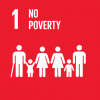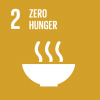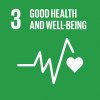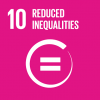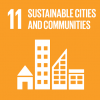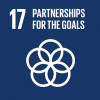Influencing public authorities and sensitizing civil society to the cause of the homeless by means of a more effective people care policy aimed at improving their living conditions.
- Officials and professionals of the institutions that make up the Red Calle Network.
- Officials and employees of the ministries and public bodies with competence in public policies and care for homeless people.
- The homeless population of the countries involved in the project.
-

The EUROsociAL Programme is at the origin of the project. Through its "Integral Social Protection Systems" component, the EUROsociAL Programme promoted the creation of the "Permanent Latin American Working Group on the Homeless", which is the embryo of the RED CALLE project. https://eurosocial.eu/
-

The project participated in two events organised by the European Federation of National Organisations Working with the Homeless (FEANTSA): the FEANTSA 2019 Policy Conference, in Porto (Portugal) » More information here, and the 14th European Research Conference, in Helsingborg (Sweden) » More information here.
-

Professionals Vincenzo Castelli (from the "On The Road" social organization and consultant of EUROsociAL+, presenting the street companies subject), Paolo Trevisanato (from the Don Bosco Project organization, presenting the experience in Bolivia as regards the defence of children's rights and the issue of prison discharge) and Francesco Padovani (from the Esperanza Project organisation, presenting the reality of homeless people and prison discharge in the Dominican Republic) participated as speakers in the "Foro Internacional Red Calle Latinoamericana" Forum organised by the project.
-

Professor Pedro Cabrera Cabrera, researcher at the Universidad Pontificia de Comillas -Comillas Pontifical University, has been a consultant to the project and has coordinated a comparative diagnosis between the six countries that make up the Network in order to get to know the current situation of public policies aimed at caring for homeless people.
-

Professor Isabel Baptista, researcher at the Centro de Estudos para a Intervençao Social - Center of Study for Social Intervention (CESIS), has advised the RED CALLE project in the design and planning of the study visit to Lisbon.
-

The project has paid a study visit to Lisbon to learn more about the work that the CRESCER association carries out with homeless people. The "É uma casa - Lisboa Housing First" project is worth highlighting. » More information here.
-

The German association Gesellschaft für innovative Sozialforschung und Sozialplanung -Association for Research on Innovation and Social Planning- contributed to the formation of the "Latin American permanent working group on the homeless", the predecessor of the project.
STUDY VISITS
-
-

Visita de estudio a la ‘Conferencia anual de la Federación Europea de Organizaciones Nacionales que Trabajan con Personas en Situación de Calle (FEANTSA)’, en Oporto, para profundizar en el conocimiento sobre las políticas europeas en esta materia.
» For more information click here -

Visita de estudio a Portugal, en Lisboa y Oporto, para conocer el trabajo de organizaciones sociales en la aplicación de la metodología ‘Housing first’, entre las que destaca la organización CRESCER
» For more information click here -

Visita de estudio a la ‘XIV Conferencia europea de investigación sobre las personas sin hogar’, en Helsingborg, para presentar los resultados de la investigación realizada en el marco del proyecto
» For more information click here
-
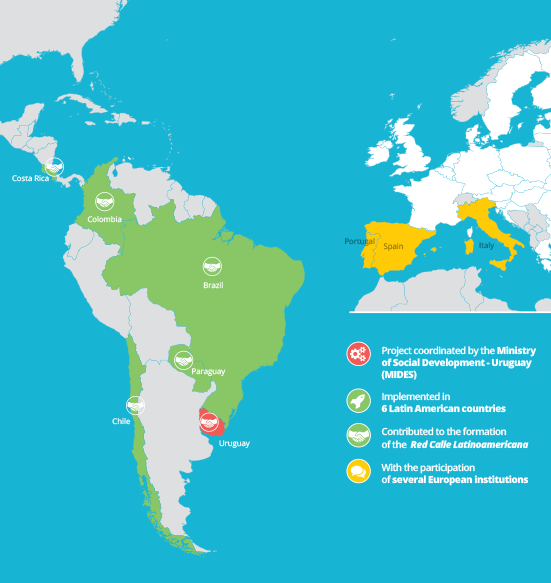
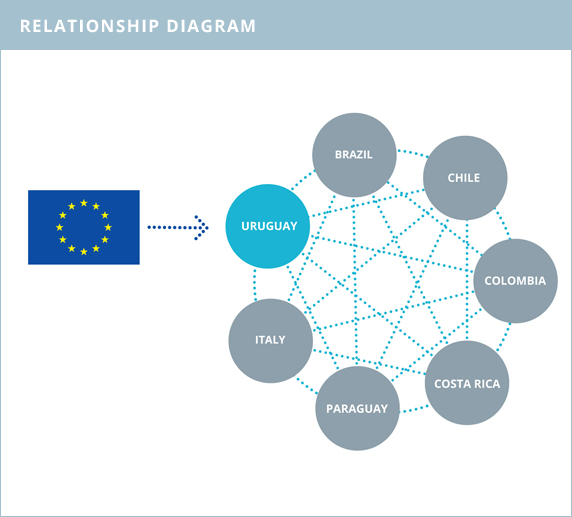
The initiative seeks to improve the living conditions of homeless people in several Latin American countries through the creation of a Regional Network. Therefore, the national policies of the countries involved will be strengthened, sharing and improving tools, and exchanges, cooperation and dissemination of innovations relating to this topic will be promoted. At the same time, it will educate both public institutions and civil society in order to place this issue on the public agenda. The perspective, at the end of the project, is that the regional network is fully operational and is open to the inclusion of new countries, thus increasing the effectiveness of the policies of attention for people in vulnerable situations. Moreover, it is expected that civil society and public institutions will have prioritised the issue and that it forms part of the public agenda in these countries.
MAIN CONTRIBUTION, FROM THE PROJECT'S THEMATIC PERSPECTIVE
CONTRIBUTION FROM A PARTICULAR PROJECT COMPONENT, COMPLEMENTARY TO THE MAIN TOPIC
CONTRIBUTION FROM CROSSCUTTING TOPICS
Good Practices
Incorporating the dimension of political dialogue and institutional negotiation, from the outset and throughout implementation, was fundamental in order to ensure the project's governance.
Lessons Learnt
At the beginning of the project, there was a theoretical framework for "Peer-to-Peer technical visits": one of the pillars of the project which consists of visits to each of the partner countries, including pol...
Success Stories
Thanks to the project, a consolidated methodology has been developed and implemented for the joint creation of work agendas for peer-to-peer visits aimed at compiling best practices and issuing recommendations....
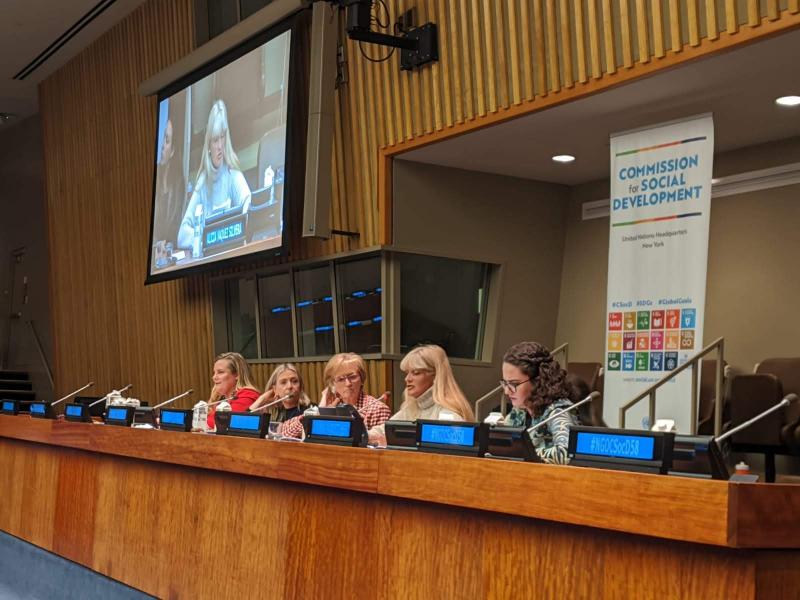
The Red Calle Project participated in the 58th Session of the United Nations Commission for Social Development, which took place in New York City from 9 to 20 February 2020, and addressed the issue of homelessness and affordable housing. There, the UN adopted the first resolution that defines homelessness and urges member states to standardise their methods of measuring and collecting data that will allow them to assess the true magnitude of this global issue.
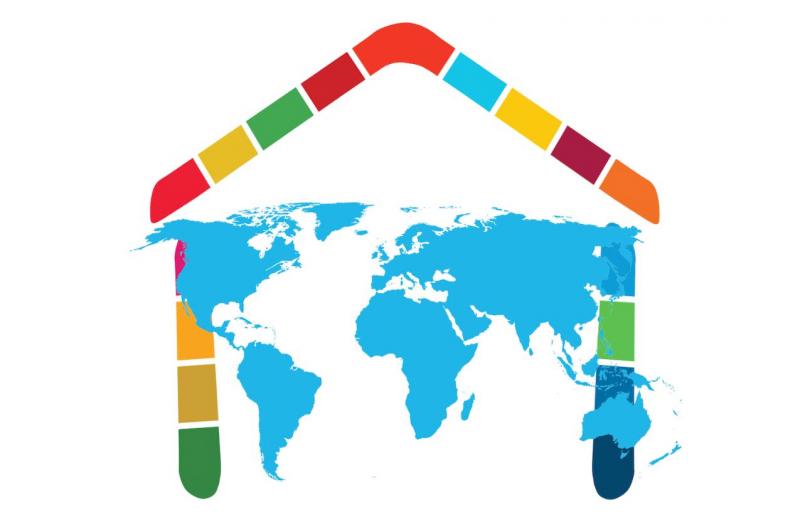
The Fifty-eighth Session of the Commission for Social Development of the United Nations Economic and Social Council is taking place in New York City, USA, from 10 to 19 February 2020. The priority Theme is: "Affordable housing and social protection systems for all to address homelessness".

The results of the implementation of the Red Calle Project (2017- 2019) will be presented at the forum. It will also seek to formalize the institutional commitments to be assumed by the Member States for the future continuity of the RED CALLE project. Delegations from the Network's member countries and a local audience made up of representatives from social organizations in Costa Rica will participate.
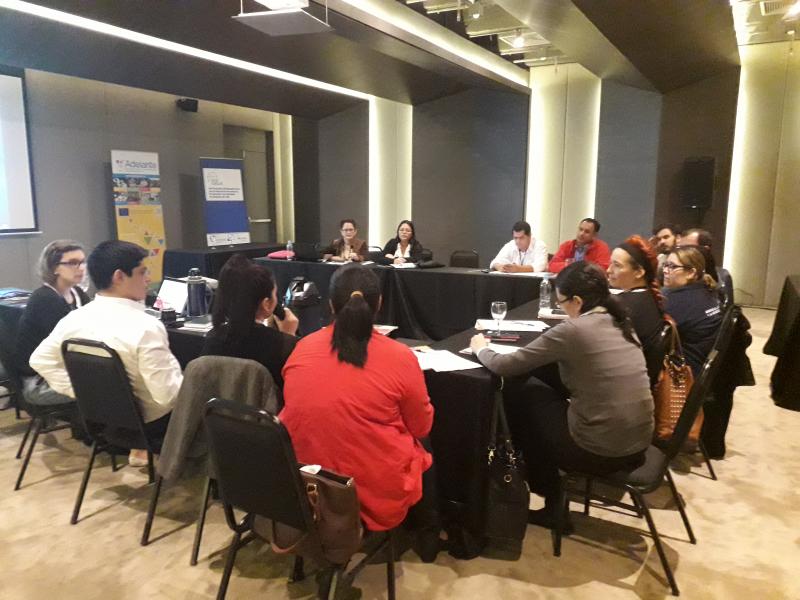
The Delegations of the Red Calle Latinoamericana Project carried out a Technical Assistance Mission to the Ministry of Childhood and Adolescents of Paraguay from 24 to 28 June 2019, in the city of Asunción.
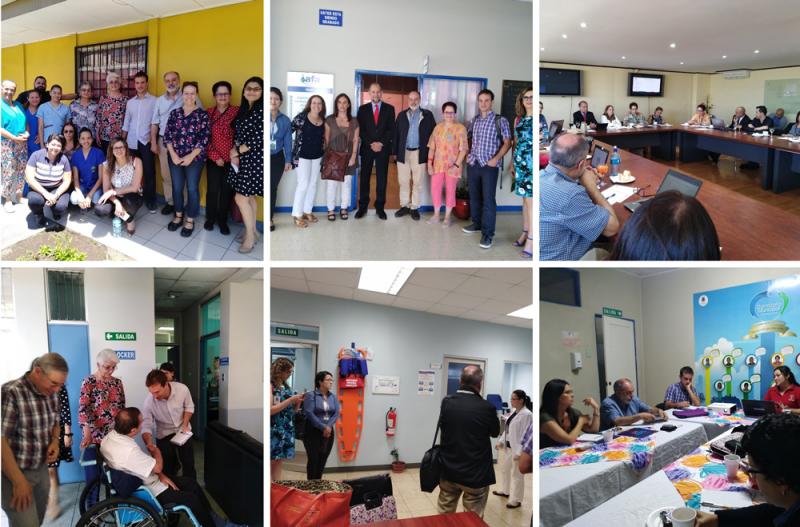
Last week, between June 12 and 15, the consultants Dr. Pedro Cabrera and Dr. Santiago Bachiller made a technical visit to Uruguay, ending the round of diagnostic visits to the six countries that currently make up the Latin American Street Network.
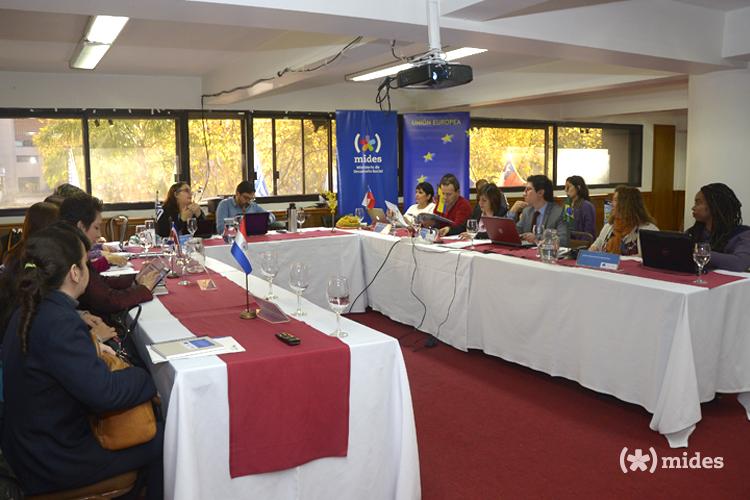
From 14th - 16th June 2017, the first meeting of the Working Group of the Regional Project was held in Montevideo, Uruguay: “RED CALLE - Latin American network of countries for developing policies to support the homeless”.
Press room
In this section you will find detailed information about the Red Calle project, specifically created for the media.
Press releases:
There are currently no press releases



